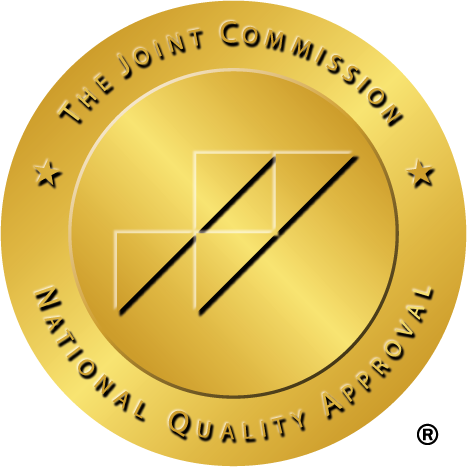A psychological evaluation is an assessment of a person’s mental state and behavior conducted by a licensed psychologist. It can diagnose mental health disorders, assess cognitive abilities, or evaluate the effects of trauma or treatment.
Although a psychological evaluation can be helpful, it’s essential to be aware of the potential cost, which can depend on several factors due to the personalized nature of the assessment and insurance coverage.
SPEAK WITH AN ADMISSIONS COUNSELOR TODAY
The Purpose of Psychological Testing
Psychological assessments gauge cognitive and emotional competencies [1] to detect specific diagnostic cases, such as ADHD, learning disabilities, autism, or other mental health issues. They aid in determining an individual’s ability to make sensible judgments, particularly in legal circumstances where mental capacities are under scrutiny.
To determine if a job applicant is suitable for a particular job that requires good interpersonal skills, an employer may ask for a psychological evaluation. This feedback session will assess the applicant’s communication skills and ability to interact effectively with others.
During a practical assessment, a psychologist can gather necessary information through various evaluations, exams, and interviews. These include self-report surveys, cognitive reviews, and formal clinical interviews. The psychologist may also obtain additional data from those involved in the patient’s treatment, such as family members and other medical professionals.
Where Does a Psychological Evaluation Take Place?
Psychological assessments can occur in various locations, such as psychiatric hospitals, outpatient clinics, private practice offices, or community health centers. Typically, these assessments are conducted in psychiatric hospitals [2] on patients requiring immediate mental health care.
Outpatient clinics offer mental health therapy and medication management services. Experienced professionals conduct adult psychological evaluations on an individual or group basis according to patient preference. These clinics provide ongoing care to individuals who do not need to be hospitalized, making it easier for those who need help.
Licensed mental health professionals can also administer psychological assessments in private practice settings. For example, they might conduct evaluations in their office or through video conferencing online as per their preference.
In addition, clients can schedule appointments with professionals. This flexibility in location facilitates mental health service access, especially for people facing time constraints or geographical barriers when going to in-person evaluations.
Psychological evaluations are frequently conducted at community health centers, which provide accessible or affordable mental health services to those who cannot bear the expenses of treatment. Skilled professionals administer these evaluations, which can be supplemented by referrals to proficient service providers for treatment.
How Much Does a Psychological Evaluation Cost?
Generally, psychological assessments are subjected to hourly rates ranging from $125 to $200. As a result, a thorough examination may cost between $1,500 and $10,000. That being said, the final costs associated with a psychological evaluation will depend on a few factors.
Type of Evaluation
The cost of mental health evaluations mainly depends on the evaluation type required. Various evaluations exist [3], including diagnostic, neuropsychological testing, forensic, and fitness for duty evaluations.
The complexity and duration of therapy sessions primarily influence the cost implications and intended use for the specific assessment. For example, a forensic examination designed for court proceedings may be more costly than a diagnostic evaluation, especially if follow-up evaluations need to take place.
The Relationship with the Psychologist
The connection an individual cultivates with their clinical psychologist can significantly impact the cost of a psychological evaluation. It’s important to note that therapists may charge varying fees, and it’s wise to explore options by contacting various psychologists and inquiring about their rates.
You may even find that some psychologists are open to negotiating their fees, especially if you pay out of pocket or have a high-deductible insurance plan.
Insurance Coverage
The cost of psychological evaluations is significantly impacted by health insurance coverage. Although most insurance companies offer coverage, the extent depends on the plan selected and may differ according to the types of evaluations covered.
Additionally, policies can dictate what percentage of the cost the policyholder is responsible for. Therefore, before scheduling an assessment, it is crucial to consult with your insurance provider to ensure appropriate coverage.
Location and Clinic Setting
The cost of psychological evaluations is influenced by the geography and clinic setting. There is substantial variability in average costs across different states, and the clinician’s location is a crucial determinant of pricing.
For example, private clinics in urban areas may charge higher fees than public community clinics in rural regions. Furthermore, evaluations conducted in hospital settings or hospital-affiliated clinics are associated with higher costs.
If you are looking for a Psychological Evaluation in Raleigh, reach out to the team at New Waters Recovery today. Our admissions counselors are standing by!
SPEAK WITH AN ADMISSIONS COUNSELOR TODAY
Psychological Evaluation FAQs
You will engage in an introductory consultation with a mental health expert as part of a psychological evaluation. This session aims to understand your background, symptoms, and worries.
You may also be required to complete questionnaires or standardized tests that evaluate various aspects of your cognitive, emotional, and behavioral functioning. Rest assured that this process aims to provide a comprehensive understanding of your mental health status.
The duration of a psychological assessment is subject to the intricacy of the case and the particular techniques employed. However, these evaluations can generally span from a few hours to multiple days, concluding with a subsequent meeting to analyze and discuss the outcomes.
Generally speaking, the results of psychological evaluations are considered privileged and safeguarded by legal statute. Nonetheless, some circumstances warrant exceptions to this norm, such as court-mandated evaluations or when the individual’s or others’ safety is in question.
A psychological assessment is a professional and structured appraisal to obtain insights into an individual’s emotional well-being. Therapy, on the other hand, focuses on treating particular emotional and behavioral issues. Therefore, it is essential to conduct evaluations before commencing therapy as they aid in developing an effective treatment plan and objectives.
Typically, medicare or health insurance plans will provide coverage for a psychological evaluation. However, for clarification on mental health benefits coverage and reimbursement, it is recommended that individuals consult with their provider.
Moreover, psychologists may offer services at a sliding scale fee rate to accommodate those without insurance, rendering it more financially feasible.
Related Topics
Sources
[1] Gander, S., & Campbell, S. (2018). Examining access to psychoeducational assessments by socioeconomic factors for children with behavioral referrals. Paediatrics & Child Health. https://www.ncbi.nlm.nih.gov/pmc/articles/PMC5961196/ on May 25, 2023
[2] Mental status examination – StatPearls – NCBI Bookshelf. National Library of Medicine. (n.d.-b). https://www.ncbi.nlm.nih.gov/books/NBK546682/ on May 25, 2023
[3] Harvey, P. D. (2012, March). Clinical applications of neuropsychological assessment. Dialogues in clinical neuroscience. https://www.ncbi.nlm.nih.gov/pmc/articles/PMC3341654/ on May 25, 2023


